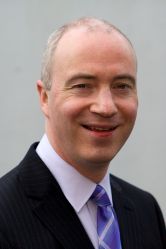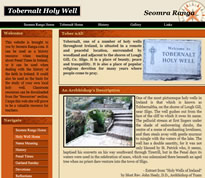 Teaching in Ireland in the 21st Century – a Road Map for Enhanced Professionalism
Teaching in Ireland in the 21st Century – a Road Map for Enhanced Professionalism
Long before the Teaching Council was established in 2006, many in the education sector had called for regulation of the profession. They saw the establishment of a teaching council as a vital step in the professionalisation of teaching. Their vision, stretching back to the 1970’s when teaching qualifications were given degree status, was to have ownership of the profession vested in its own members, rather than the Church or the State. They sought to reassure the public that they could trust them to do this by making sure that a robust Fitness to Teach process was in place. Regulations of various forms have long been recognised as a means of demonstrating to the public why they can repose their trust in any profession.
Teaching has come a long way since the 1970s in terms of its professionalisation. The establishment of the Teaching Council in 2006 was an explicit recognition of this by the public through their elected representatives in the Oireachtas. Notwithstanding this, we in the Teaching Council would be the first to admit that teachers, and the public, have been somewhat short-changed to date in terms of the scope of the Teaching Council they were promised. As the newly appointed Director of the Council, I am grateful for this opportunity on World Teachers’ Day to convey to teachers and the public how important it is that we finish the journey that we embarked on in 2006.
As part of this, I acknowledge that we have a responsibility to explain to the profession why regulation matters, and why the Teaching Council is the best structure for this regulation. We are anxious to make progress at a faster rate and we are committed to improving our relationship with the teaching profession. This is all with the aim of maintaining and enhancing the status of the profession in the eyes of the public, so that there will be no doubt but that teaching will be acknowledged for what it is – the most important profession in society. Indeed, we in the Council believe that it is second only to parenthood in terms of its importance for our social well-being and economic progress.
Role of the Teaching Council
Since my appointment as Director of the Teaching Council, I’ve heard a number of teachers question the role and value of the Teaching Council. My answer is quite simple. The Teaching Council is the statutory body charged with the responsibility for maintaining and enhancing the quality of teaching in Ireland for our children and young people. In this context, every teacher knows that their relationship with their pupils / students, and by extension their parents / guardians, is based on trust. We know in the Ireland of today how fragile a concept trust is. We also know that the old ways of maintaining trust no longer hold. The public has seen fit through its representatives in the Oireachtas to create an independent statutory body to maintain that trust in the 21st century, both in their own interest and for the benefit of the profession. It behoves us all who are charged with implementing this mandate to do everything we can to show that the public’s trust is well placed.
We therefore act in the interests of the public good in seeking to uphold and enhance the reputation and status of the teaching profession through fair and transparent regulation. Our role is broadly similar to that of the Medical Council for doctors and An Bord Altranais for nurses. Even though a number of the Teaching Council’s functions have yet to be given effect by direction from the Minister for Education & Skills, we are already enhancing the quality of teaching in a number of ways:
1. Establishing and maintaining the first Register of Teachers in this State, at primary, post-primary and further education level. There are over 76,000 teachers currently registered. The establishment of a register has been a critical step in providing reassurance to the public that every registered teacher is fit to teach. As part of this work, the Council also co-ordinates the Garda Vetting process for all new entrants to the register (over 10,000 per year in 2011; up to 17,000 this year);
2. Assessing approximately 1,200 applications for registration of teachers coming to work in Ireland from overseas each year. This involves an assessment of qualifications to make sure that they meet the same standards as teachers who studied here in Ireland.
3. Developing and publishing a Code of Professional Conduct for Teachers, the second edition of which was published this summer. A code demonstrates to the public that the profession has standards in place that allow it to be trusted. The Code will have an added significance for both the profession and the public when Part 5 of the Teaching Council Act is commenced (Fitness to Teach).
4. Reviewing and accrediting programmes of Initial Teacher Education (ITE). We have reviewed eight existing ITE programmes to date, and we are now embarking on the review and accreditation of the re-conceptualised programmes of ITE over the next two years. This will be a significant piece of work involving at least eight review panels examining more than 45 programmes.
These programmes are the first gateway of entry into the profession, and thus it is critically important that the highest standards permeate every aspect of them. The Teaching Council has the legal responsibility for making sure that this is the case. These reconceptualised programmes are often referred to as extended programmes. All concurrent programmes of ITE will be 4 years with effect from September 2012, and all consecutive programmes will be 2 years in duration from September 2014. Reconceptualised is another way of saying that these new programmes will not be more of the same. Each provider of ITE is being asked to reimagine all that they do, and clearly articulate their rationale or values base for so doing. This is all to be done with the singular intent of enhancing the quality of preparation for new entrants into the profession of teaching.
Compulsory Registration (Section 30: A critical step towards the introduction of Fitness to Teach)
The Minister for Education and Skills, Mr. Ruairí Quinn T.D., has publicly indicated his intention to commence Section 30 of the Teaching Council Act, 2001, during the 2012/2013 school year. Once Section 30 is commenced, only registered teachers employed in State-funded teaching positions in recognised schools will be paid from State resources.
The Teaching Council is anxious to move as quickly as possible to this critical next step in the regulation of the teaching profession and we are working closely with the Department of Education and Skills (DES) and the Vocational Education Committees (VECs) to make sure that the implementation of Section 30 is as efficient and as effective as possible. The commencement of Section 30 must take place before Fitness to Teach process can be introduced but, in the meantime, I would like to reassure teachers regarding a few points in relation to the implementation of such new disciplinary proceedings.
Firstly, Fitness to Teach is about reinforcing the integrity of the profession by investigating complaints made in respect of individual teachers, and it is important to note that the vast majority of teachers will never have a complaint made against them. Secondly, the Teaching Council provides for a “triage” system to eliminate vexatious complaints – the Director has responsibility for dealing with this aspect of the work. Thirdly, the Council will provide information to teachers on what to do if a complaint is made against them.
Relationship between the Teaching Council and the Teaching Profession
Being a self-regulated profession (the Council has a teacher majority unlike other professional regulatory bodies which have a lay majority) puts an extra responsibility on the teaching profession to demonstrate to the public that they accept the value of such regulation. The responsibility of the Teaching Council is to demonstrate that the regulation is fair and transparent. To do otherwise could create the impression of a Council which is only interested in protecting the profession, at the expense of the public. This would be immensely damaging to the standing of the teaching profession. For our part, the Teaching Council is committed to working harder to ensure that teachers fully understand the importance of the Teaching Council’s remit, especially in terms of its responsibility to promote the profession of teaching.
We will work hard too on how we communicate with teachers and make ourselves available to them. I fully understand the frustration experienced by some teachers in trying to make contact with the Council by telephone and teachers are entitled to an explanation. Even though the Council is a self-funding body, we are subject to the Public Service Employment Control Framework which means we cannot recruit additional staff. Consequently, we found ourselves in a situation where we were spending so much time on the phone dealing with queries from teachers that we were unable to process registration applications, or advance our other work, as speedily as we would like. For that reason we had to make the difficult decision to curtail the hours during which our phone line is staffed. We are actively seeking to resolve this problem as soon as possible with a view to having the phones open during normal business hours.
In the meantime, if any teacher has a query for the Council they can email it to info@teachingcouncil.ie and we will reply to it as soon as possible.
We will also continue to issue regular e-zines to teachers for whom we have email addresses. These e-zines keep readers up-to-date with the activity of the Council. The Council’s website is another useful resource for teachers, www.teachingcouncil.ie
Tomás Ó Ruairc was appointed Director of the Teaching Council on May 14th 2012 to succeed Áine Lawlor. He moved to the Teaching Council from a senior position in the Department of Arts, Heritage and Gaeltacht. Prior to that, he was Deputy CEO and Director of Education Services in Foras na Gaeilge. He has considerable experience in the field of education, having served as a member of the NCCA from 2006 to 2009 and as Head of Irish and Chair of the Academic Council in Froebel College of Education from 2000 to 2005. He was a teacher in Athlone Community College and has produced syllabus and teaching materials in the area of teaching of Irish to adults. He has a B.A., M.A. and a Higher Diploma in Education.
Seomra Ranga would like to thank Tomás for taking the time out of his busy schedule to put together a comprehensive Guest Post on Teaching in Ireland in the 21st Century to coincide with World Teachers’ Day. He has taken on a difficult job in challenging times for the profession and no-one doubts the many challenges that are facing him and his colleagues in the Teaching Council. I wish him well as he embarks on a new journey in his career. Go n-éirí an t-adh leis!





